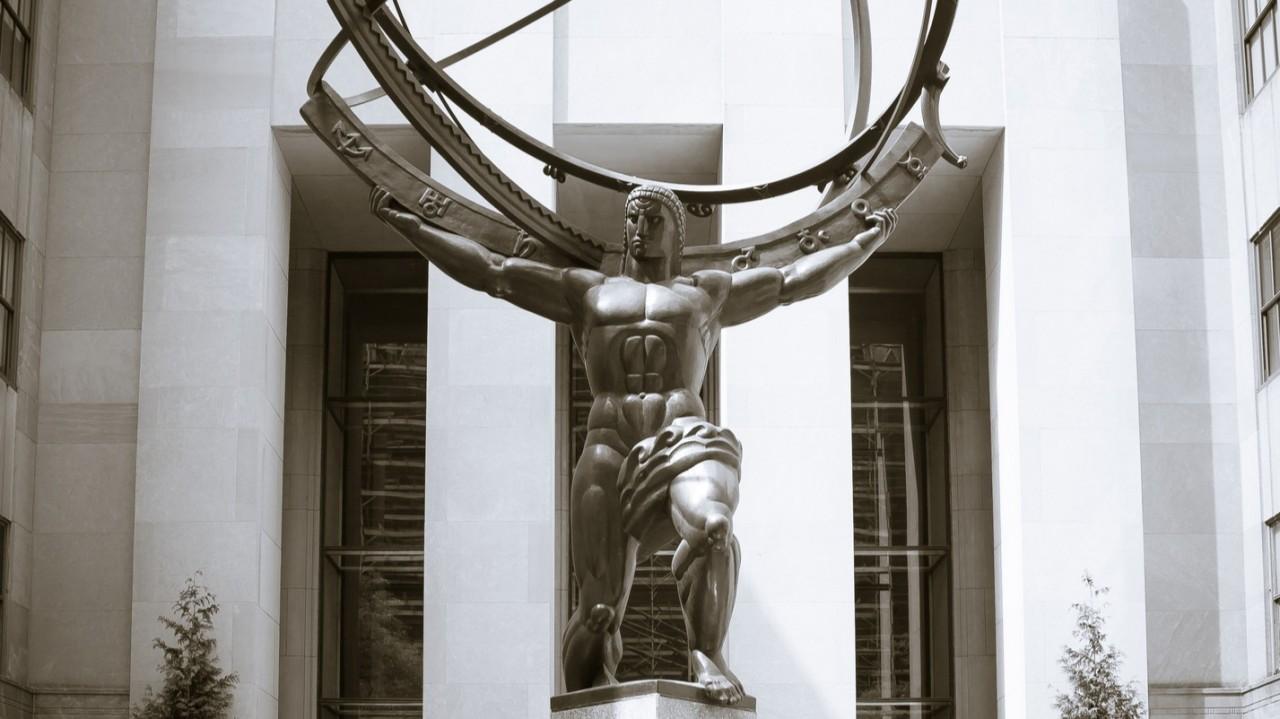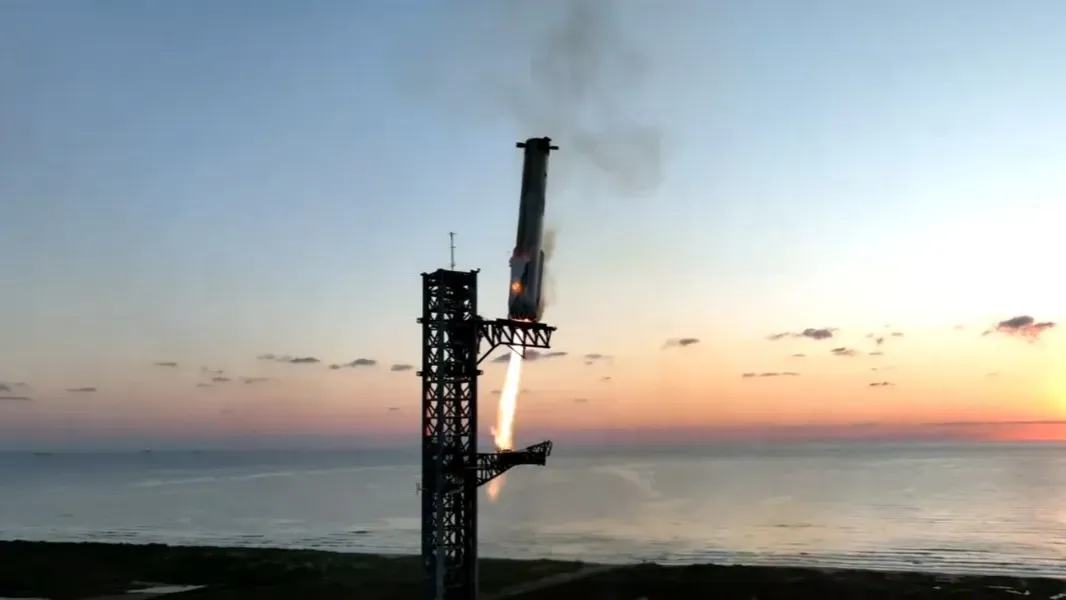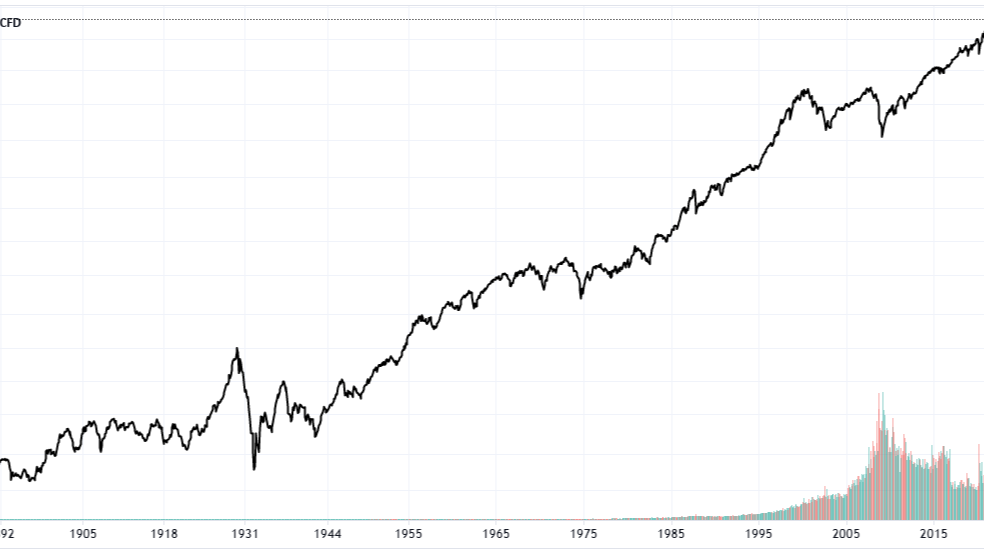“Our packs, vests, guns, and ammo were over 100lbs, and that was before the water crossings,” said Jackson, back from the field, tired, wired. “At 3am our position came under fire, simulated mortars, machine guns, insanely loud, chaotic, and we had minutes to move.” The Basic School, Marines. Quantico, Virginia. “We learned about the five V’s. The crotch V, armpits, and the V shape from our neck to shoulders. The human brain has evolved over millions of years to recognize these angles and shapes, no matter how well you might otherwise be camouflaged. These are the angles you need to learn to conceal in the field.”
Overall: “Whether he is trying to influence the election, I don’t know but I am not counting on that,” said President Biden, referring to Netanyahu. “No administration has done more to help Israel than I have,” continued America’s Commander-in-Chief, defensively, politically vulnerable on this issue, on his way out. Speculation swirled. Would Bibi respond to Iran’s missile attack by taking out the Ayatollah’s oil fields or nuclear facilities? Perhaps both? And with the bear market collapse in Mullah pager usage, how would the Mossad neuter Iran’s leadership? Only Netanyahu knew. And this of course is the world we now live in. Long gone are the days when polite central bank governing boards determined the arc of world history. The age of the politician has returned. “The Israelis have not concluded what they are going to do in terms of a strike. That’s under discussion,” said Biden. “If I were in their shoes, I'd be thinking about other alternatives than striking oilfields,” added the president, having not spoken directly with Israel’s leader since August. An oilfield strike would lift oil prices, gasoline, inflation. And who knows, the Ayatollah might then strike Saudi oilfields, which would take crude well above $125/barrel. This would surely cost Harris the election. But the Mullahs don’t want Trump II. Bibi sure does. MBS too. And his Saudi forces could surely be doing more to take out the Houthis, who attacked two more ships this week. But the Ayatollah’s proxies continue to operate in the vacuum. Disrupting world trade, providing a glimpse of what our future will look like without overwhelmingly strong, fully engaged, principled US leadership. And in this new political age, no one outside a few leaders with their fingers on the triggers can accurately predict what will happen next. The only thing that seems probable is that most of what will unfold will occur between now and when America elects its next president. November 5th.
Week-in-Review: Mon: China to cut existing mortgage rates by Nov, Powell says Fed is not in a rush to cut rates, Israel bombs center of Beirut, Japan PM Ishiba calls snap October election, US ports along the East and Gulf coasts on the verge of shutting down after labor talks stall, Bostic says open to another 50bp rate cut if labor market shows unexpected weakness, German CPI 1.6% (1.7%e), US Chicago PMI 46.6 (46.0e), Japan Jobless rate 2.5% (2.6%e) IP -4.9% (-1.5%e) / Ret sales 2.8% (2.6%e), China PMI mfg 49.8 (49.4e), UK House Px 3.2% (2.7%e), UK GDP 0.7% (0.9%e), S&P +0.4%; Tue: Iran fires 200 missiles at Israel in a second direct attack this year, oil surges more than 5% before paring some gain, JD Vance is seen to handily win debate with Tim Walz, Ireland unveils fiscal stimulus worth 2% of GDP, US JOLTS job opening 8040k (7693k e), US ISM 47.2 (47.5e), Eurozone PMI mfg 45.0 (44.8e) / CPI 1.8% as exp / Core CPI 2.7% (2.8%e), UK PMI mfg 51.5 as exp, S&P -0.9%; Wed: Biden opposes Israeli strikes on Iran’s nuclear sites, G7 leaders still confident in “diplomatic solution” in Middle East and stand ready to impose fresh sanctions against Iran, BoE warns of risks from hedge fund bets against US government bonds, City minister Siddiq wants to issue “digital gilts” on the blockchain, China makes push to support issuance of “panda bonds” by developing nations, CFTC files first fraud charges in voluntary carbon credit market, Hamas claims responsibility for Tel Aviv shooting attack, OpenAI asks investors not to back rival start-ups, US ADP emp change 143k (125k e), Brazil IP 2.2% as exp, Russia Ret sales real 5.1% (5.5%e) / Unemp rate 2.4% as exp / GDP 4.1% as exp, S&P flat; Thur: Japanese PM Ishiba says economy “not in an environment” for further interest rate rises, BoE Governor Bailey says they could be “a bit more aggressive” in cutting rates, G7 leaders call on Israel and Iran to avoid “uncontrollable escalation”, oil surges after Biden’s comments on Israeli retaliation, Libya restarts oil production after political crisis, Eurozone house prices return to growth for first time since 2022, EU sues Hungary over “national sovereignty” law, Turkish inflation rate drops below 50% for first time in more than a year, US Jobless claims 225k (221k e) / cont claim 1826k (1830k e), US PMI serv 55.2 (55.4e) / comp 54.0 (54.4e), US Factory orders -0.2% (0.1%e) / Durable goods orders 0.0% as exp, Eurozone PMI serv 51.4 (50.5e) / comp 48.9 (49.6e), UK services PMI 52.4 (52.8e), France services PMI 49.6 (48.3e), Italy services PMI 51.4 (50.5e), Swiss CPI YoY 0.8% (1.2%e), S&P -0.2%; Fri: US military strikes multiple Houthi targets in Yemen, BoE Chief Economist Pill sees need for caution in cutting key rates, US ports reopen after dockworkers end strike, Traders scrapped bets on a 50bp Fed cut in November following strong NFP, EU voted to impose tariffs as high as 45% on electric vehicles from China (Germany and four others voted against proposal), Biden tells Israel to consider “other alternatives” to oilfield strikes, US Change in nonfarm payrolls 254k (150k e) / AHE MoM 0.37% (0.3%e) / Unemp rate 4.1% (4.2%e), France IP MoM +1.6% (0.2%e), Mexico Unemployment rate 3.04% (2.91%e), S&P 0.9%.
Weekly Close: S&P 500 +0.2% and VIX +2.25 at +19.21. Nikkei -3.0%, Shanghai +8.1%, Euro Stoxx -1.8%, Bovespa -0.7%, MSCI World -0.8%, and MSCI Emerging +0.4%. USD rose +13.3% vs Ethereum, +8.3% vs Bitcoin, +4.6% vs Yen, +2.7% vs Sweden, +2.6% vs Chile, +2.4% vs Indonesia, +2.2% vs South Africa, +1.9% vs Sterling, +1.9% vs Russia, +1.7% vs Euro, +1.6% vs Australia, +0.4% vs Canada, +0.4% vs Brazil, +0.3% vs India, +0.3% vs Turkey, and +0.1% vs China. USD fell -2.1% vs Mexico. Gold -0.0%, Silver +1.8%, Oil +9.1%, Copper -0.6%, Iron Ore +7.2%, Corn +1.6%. 10yr Inflation Breakevens (EU +13bps at 1.85%, US +7bps at 2.23%, JP +1bp at 1.21%, and UK +16bps at 3.54%). 2yr Notes +36bps at 3.92% and 10yr Notes +22bps at 3.97%.
Sept Mthly Close: S&P 500 +2.0% and VIX +1.73 at +16.73. Nikkei -1.9%, Shanghai +17.4%, Euro Stoxx -0.4%, Bovespa -3.1%, MSCI World +1.7%, and MSCI Emerging +6.4%. USD rose +2.8% vs Russia, +0.4% vs Turkey, and +0.2% vs Canada. USD fell -7.2% vs Bitcoin, -4.4% vs Ethereum, -3.1% vs South Africa, -2.8% vs Brazil, -2.1% vs Australia, -2.0% vs Indonesia, -1.9% vs Sterling, -1.7% vs Yen, -1.3% vs Chile, -1.1% vs Sweden, -1.0% vs China, -0.8% vs Euro, -0.2% vs Mexico, and -0.1% vs India. Gold +5.2%, Silver +7.9%, Oil -6.2%, Copper +8.1%, Iron Ore +2.1%, Corn +5.9%. 10yr Inflation Breakevens (EU -3bps at 1.74%, US +4bps at 2.19%, JP -14bps at 1.19%, and UK -1bp at 3.40%). 2yr Notes -28bps at 3.64% and 10yr Notes -12bps at 3.78%.
2024 Year-to-Date Equity Index Close: Argentina +57.3% priced in US dollars (+88.9% priced in pesos), HK +34.1% priced in US dollars (+33.4% in HK dollars), Malaysia +22% in dollars (+12.1% in ringgit), NASDAQ +20.8% in dollars, S&P 500 +20.6% in dollars, Taiwan +18.8% (+24.4%), MSCI World +16.7% in dollars, South Africa +15.8% (+11%), Netherlands +14.8% (+15.9%), Belgium +14.6% (+15.7%), Spain +14.3% (+15.4%), Hungary +14.3% (+21.1%), India +14% (+15.1%), China +13.5% (+12.2%), Germany +13.1% (+14.1%), Philippines +12.9% (+15.8%), Canada +12.1% (+15.3%), Singapore +11.9% (+10.8%), Greece +10.1% (+11.2%), UK +10% (+7.1%), Italy +9.6% (+10.7%), Japan +9.2% (+15.5%), Russell +9.2% in dollars, Czech Republic +8.7% (+12.6%), Ireland +8.6% (+9.7%), Euro Stoxx 50 +8.6% (+9.6%), Norway +8.1% (+14%), Australia +6.8% (+7.4%), Denmark +6.5% (+7.5%), Israel +5.9% (+10.9%), Turkey +5.2% (+21.9%), Switzerland +5.2% (+7.7%), Sweden +5% (+8.7%), Thailand +4.6% (+2%), Poland +4.2% (+4.5%), Austria +4.1% (+5.1%), New Zealand +4.1% (+7.2%), Indonesia +1% (+3.1%), Colombia +0.9% (+9.1%), Finland +0.4% (+1.4%), Saudi Arabia -0.2% (-0.1%), Chile -0.4% (+4.6%), France -1% (0%), UAE -4.2% (-4.2%), Portugal -4.2% (-3.3%), Korea -7.7% (-3.2%), Brazil -12.7% (-1.8%), Mexico -19.1% (-8.3%).
Notes: The ECB put out a report in June that called on Eurozone nations to fiscally tighten by 3% of GDP to address fiscal burdens sparked by ageing populations, defense spending needs, and climate change. That would surely spark a deep recession, perhaps depression. It went on to suggest an additional 2% annual tightening would be required to return the debt/GDP ratio to the self-imposed 60% limit by 2070. This would spark depression. Even the ECB admitted their suggested policy would present challenges. I was preparing my notes for a macro podcast.
Notes II: “There is no room for complacency, as the longer the adjustment is postponed, the larger the eventual adjustment cost will be,” the ECB warned, its proposed 5% of GDP fiscal tightening amounting to an estimated 720bln euros per year. Then in September, Draghi issued an EU competitiveness report, warning of an existential crisis: “We have reached the point where, without action, we will have to either compromise our welfare, our environment or our freedom.” Draghi called for a 4.7% of GDP annual fiscal expansion to save the EU.
Notes III: Unlike the EU which is descending into economic irrelevance and unsure whether to save itself through austerity or expansion, the US is at least committed to a path, however unsustainable. The US budget deficit is 7% of GDP. In a few years, the CBO forecasts it’ll dip to 5.5% (assuming no recession) and return to 6.9% by 2034. Bipartisan support for profligacy is so strong that the only thing that will prevent runaway debt and a US financial crisis that will make 2008 seem trivial is an AI-driven productivity boom that lifts real GDP growth to 4-5% per year.
Notes IV: US profligacy is not necessarily a poor policy when considering the alternatives. The US overspent for decades, and yet, the private sector continued to expand, innovate, and produce the globe’s leading companies by market cap. Europe’s approach is failing. China’s is too. And no other competitors really matter. So, the US subsidizes retiring baby boomers, rebuilds global supply chains with reliable allies, and massively invests in an existential race for AI supremacy. Disastrous, only if the plan fails. If we win (we seem to be), the spoils more than pay for it all.
Notes V: China’s recent stimulus blitz sparked a major market rally. Like his Covid lockdown about-face, reality forced Xi to do something. The race with the US is on, Europe is barely participating, and China is quite clearly losing, at least economically. Beijing’s investment in expanding its navy and a vast police state is deeply concerning. But underneath it all is a demographic collapse which reflects a growing pessimism amongst the nation’s youth. And Tang Ping (the “lying flat” movement) is not the kind of thing that Xi’s stimulus will really address.
Notes VI: China’s equity market is not for long-term investing; it is for trading. Pull the chart back a decade or three, you’ll see for yourself. Beijing runs its economy to create jobs and allow insiders to extract money which they move offshore. Maybe that will change someday, although it’s doubtful. And if it does change, it’ll require a wholesale change in economic and political philosophy. There are no signs of that kind of game changer on the horizon. Capital owners lose in China. And in investing (life too), winners tend to keep winning and losers keep losing.
Anecdote: “Peace through strength,” said Hadrian, generally viewed as one of the Five Good Emperors, during his rule from 117-138 AD. Rather than expand the Roman Empire, Hadrian sought to consolidate it, strengthen its borders. He built the now unnecessary wall separating England and Scotland. And unlike his predecessors who relied on field reports, Hadrian spent half of his rule traveling the empire. I had gone for a long run after listening to a fascinating discussion about the nature of conflict and peace. A battle-hardened negotiator, charged with reaching a settlement to one of humanity’s enduring conflicts, spoke with a pacifist who sought a similar outcome but by different means. I considered my own perspective, my beliefs. One of the greatest natural resources the US possesses is our short history. We have had insufficient time to develop the catastrophic grievances that plague so many other regions and nations. In many respects, we are a people who left tribal hatred behind, in the hope of building a better life for our children. And this has fueled our prosperity, without which we have nothing really. Because prosperity is the foundation of power. And power begets power, just as winners keep winning. The human brain has evolved over millions of years to recognize these things. With power comes increased security, and this too is self-reinforcing. While none of these truths are secret, most of the world is so consumed with their pasts that they fail to do what is best for their futures. This too is good for the US in a relative sense and leads many of the most ambitious people in failing nations to come here. And the moral obligation of the US should surely be to do everything within its power to maximize its strength, economically, politically, scientifically, technologically, militarily. And then to lead from that position, holding itself to the highest ethical standards, transparently, democratically, domestically and internationally. Recognizing that the best way to resolve conflict is to settle it before it goes kinetic. And the way to sustain peace is through projecting overwhelming strength.
Good luck out there,
Eric Peters
Chief Investment Officer
One River Asset Management
Disclaimer: All characters and events contained herein are entirely fictional. Even those things that appear based on real people and actual events are products of the author’s imagination. Any similarity is merely coincidental. The numbers are unreliable. The statistics too. Consequently, this message does not contain any investment recommendation, advice, or solicitation of any sort for any product, fund or service. The views expressed are strictly those of the author, even if often times they are not actually views held by the author, or directly contradict those views genuinely held by the author. And the views may certainly differ from those of any firm or person that the author may advise, converse with, or otherwise be associated with. Lastly, any inappropriate language, innuendo or dark humor contained herein is not specifically intended to offend the reader. And besides, nothing could possibly be more offensive than the real-life actions of the inept policy makers, corrupt elected leaders and short, paranoid dictators who infest our little planet. Yet we suffer their indignities every day. Oh yeah, past performance is not indicative of future returns.





